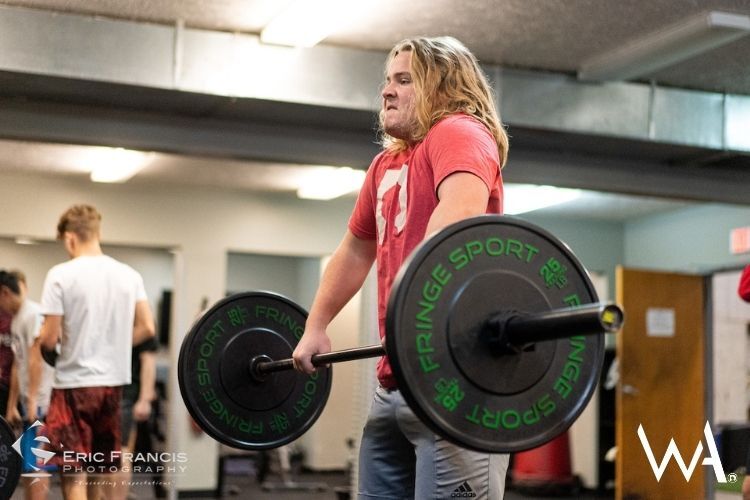
With the football season winding down and coming to a close, the offseason offers a critical window for athletes to enhance their strength and prepare for the challenges ahead. In this blog, we'll explore effective strategies that athletes can implement to maximize the benefits of offseason strength training.
Embracing the offseason
As the final whistle echoes across football fields, athletes transition into the offseason. It's a period of rest and rejuvenation, but it's also a crucial time for development. Offseason strength training lays the foundation for success in the upcoming season, whether it's months away or just around the corner. It's a chance to build strength, address weaknesses and emerge as a stronger, more resilient athlete.
Setting clear goals
The first step in productive offseason strength training is setting clear goals. Ask yourself, what do you want to achieve? Is it increased power, improved endurance, enhanced speed or better overall performance? Define your objectives and use them as guiding stars throughout your training journey. Having specific goals helps you stay focused and motivated.
Tailoring your training program
Every athlete is unique, and their training programs should reflect that. Offseason strength training should address your specific needs and positions. Quarterbacks may focus on arm strength and accuracy, linemen on explosive power and defensive backs on agility and speed. Consult with a coach or trainer to develop a customized training plan that aligns with your goals and position.
Progressive overload
To build strength effectively, you need to progressively challenge your body. This means gradually increasing the weight, reps or intensity of your exercises as your body adapts. It's like leveling up in a video game – you need to face tougher opponents to grow stronger. Keep a training journal to track your progress and ensure you're continuously pushing your limits.
Nutrition: Fueling your gains
Nutrition is the fuel that powers your training. Optimal nutrition supports muscle growth, recovery and overall performance. Focus on a balanced diet rich in lean proteins, complex carbohydrates and healthy fats. Stay hydrated and consider consulting with a sports nutritionist to fine-tune your eating plan. Think of your body as a high-performance machine – it needs the right fuel to operate at its best.
Recovery: The unsung hero
While training hard is essential, so is recovery. Adequate rest, sleep and recovery techniques are vital for muscle repair and growth. Incorporate active recovery activities like stretching, yoga or light cardio into your routine. Pay attention to your body; if you're feeling fatigued or sore, it's okay to dial back the intensity. Recovery isn't a sign of weakness; it's a smart strategy for long-term success.
Consistency and patience
Offseason strength training is a marathon, not a sprint. Consistency is key. Stay committed to your program, even when motivation wanes. Progress might be gradual, but it's steady. Understand that building strength takes time, and it's the cumulative effect of consistent effort that leads to remarkable results. Stay patient, trust the process and keep your eyes on the long-term prize.
Mental toughness
Strength training isn't just about the body; it's about mental fortitude. Pushing through challenging workouts, setting new personal records and embracing discomfort all require mental strength. Use visualization techniques to imagine your success and stay focused on your goals. Remember, every repetition and every set brings you one step closer to your objectives.
Incorporating variety
To prevent plateaus and keep training exciting, incorporate variety into your workouts. Change exercises, rep schemes and training modalities periodically. This not only challenges your body in new ways but also prevents boredom. Consider integrating functional movements, plyometrics and agility drills to enhance your overall athleticism.
Monitoring progress and adjusting
Throughout your offseason strength training, regularly assess your progress. Are you meeting your goals? Are there areas that need more attention? Be prepared to adjust your training program as needed. Seek feedback from coaches or trainers and be open to making necessary changes. Remember, the offseason is a time for growth and improvement, and flexibility in your approach is crucial.
The offseason is an athlete's canvas, where strength and skill are honed for the upcoming season's masterpiece. By setting clear goals, customizing training programs, focusing on progressive overload, prioritizing nutrition and recovery, staying patient and mentally tough, incorporating variety and regularly monitoring progress, athletes can make the most of their offseason strength training, paving the way for success on the field


